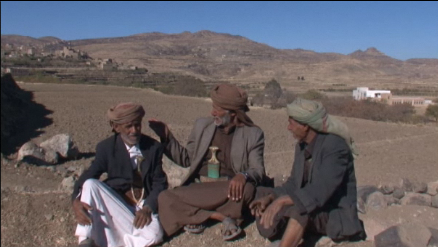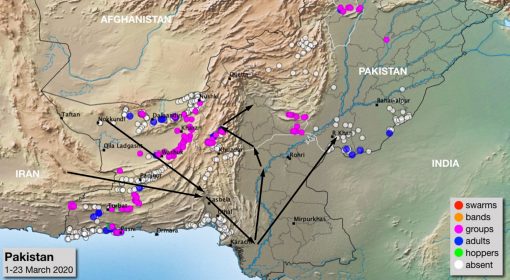Posted by Frank van Steenbergen and Kifle Woldearegay
April 25, 2016
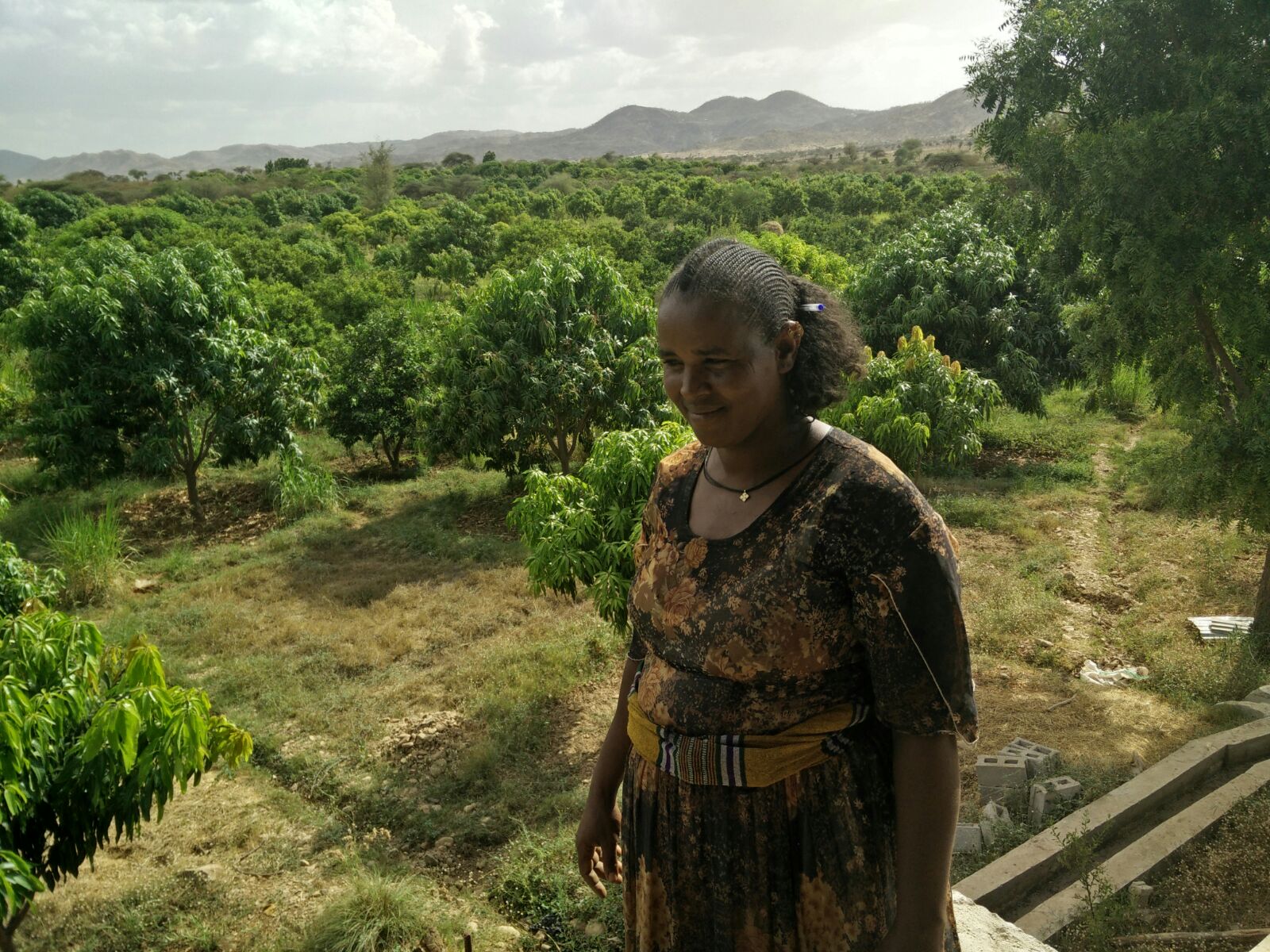
Haregu Gobezay, at her farm in Mayshwash village close to Rana town in the district of Mereb Leke, Ethiopia
Meet the soft spoken Haregu Gobezay – a farmer path-finder and a role model. In this unlikely place – barren, poor soils, within 10 kilometre of the armed border with Eritrea and away from anything, Haregu has created a 12-hectare mango farm. This is an oasis of hope
Life was not always easy for to her. She married at the age of 14. She has six children with her husband, who works with the police. Haregu first got into farming at age 25 on a small piece of land along the border of the river. At first, she protested the allocation as the land was too barren to be of use. Yet somehow she started growing tomatoes, irrigating them with water lifted from the river. Now, ten years later, Haregu has a farm with irrigation canals and she is even constructing a bridge into her farm.
The main crops in her garden are so-called apple-mangoes. Remarkably, when grafted, these apple-mangoes produce fruits in two and half year whereas other varieties take eight years to mature. The apple-mangoes originally come from Israel and Haregu was taught by the regional NGO REST (Relief Society of Tigray) how to use the apple-mangoes.
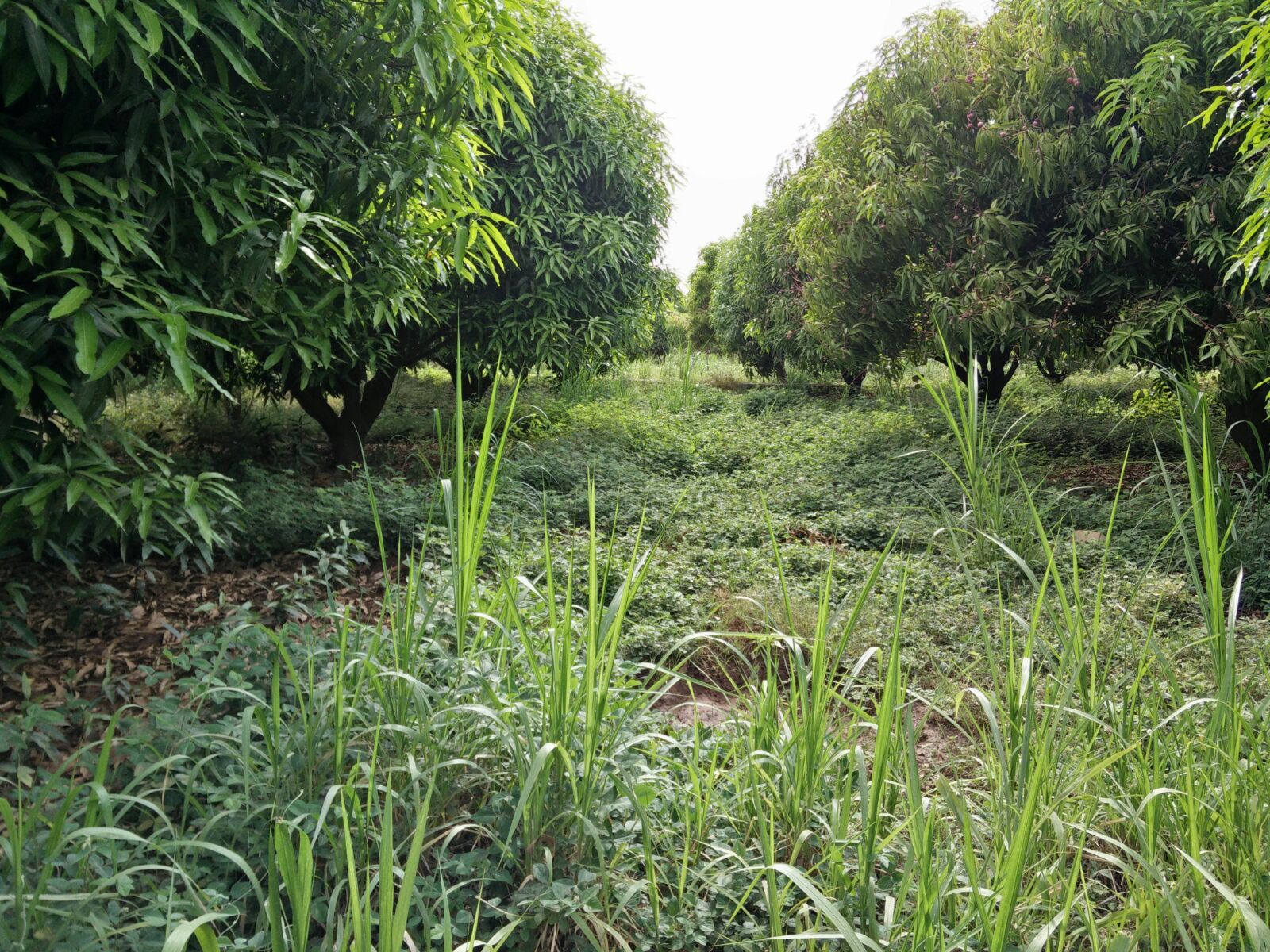
The production is entirely biological. Underneath the mango trees is a groundcover of Desmodium (a legume with bright ) combined with elephant grass. Desmodium acts as a pest repellent, is a source of fodder, and also removes salinity from the soil. Desmodium plants produce high amounts of antixenotic allomones– natural substances that repel many insect pests – as well as compounds that kill weeds. Insects landing on Desmodium in the mango garden often take refuge in the sticky leaves of the elephant grass where it receives the final blow (see image above).
The land is utterly infertile. In fact, all land has been imported. Haregu has been mixing compost with soil; with which she fills specially excavated pits for each tree. She used to bring the soil from far away, but since last year she found an ingenious way to harvest soil. She built a soil trap in the bend of the river next to her land, consisting of a 40 meter long gabion wall. During floods, silt-rich water flows behind the gabion wall, leaving behind rich soils that she uses to build up new land. This amazing set up costed 3000 Euros to build. It has affected the morphology of the river, with an increasing amount of soil being deposited upstream that is also being used by other farmers to build up land (See image below: Haregu inspecting her soil trap) .
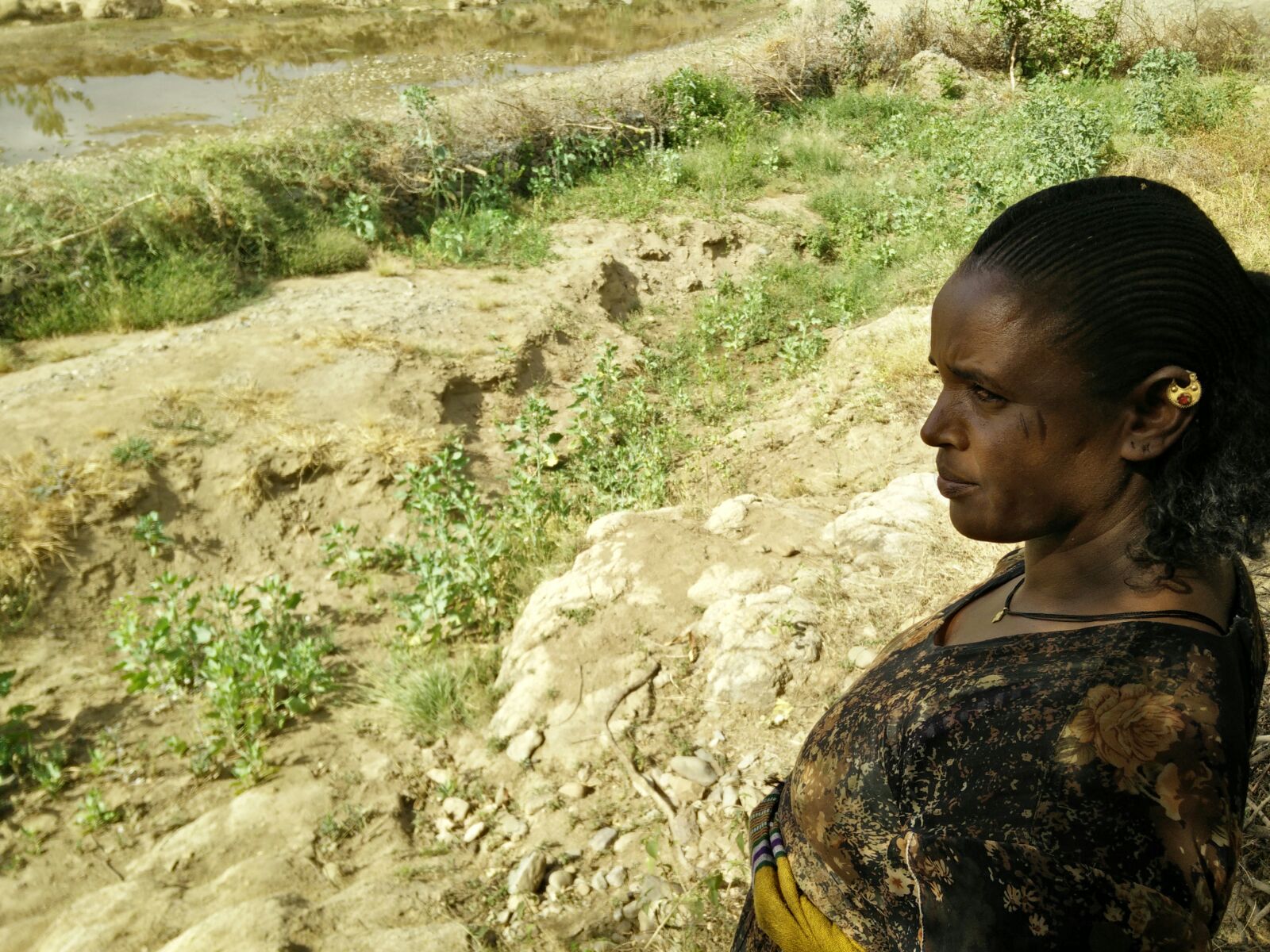
Some years ago Haregu constructed several hundreds meters of lined canal on her farm. Without these canals too much water seeped away and irrigation never seemed to reach the trees. The investment was substantial – close to 50,000 Euros. At present she is building a river crossing into her farm, again with her own resources. She estimates that the cost is 25,000 Euros – equivalent to one years profit. Yet crop losses are 15-20% because the fruits get ‘hurt’ and bruised while being transported on camel or donkey back. With a river crossing, she hopes that trucks will pick up harvest directly from her land.
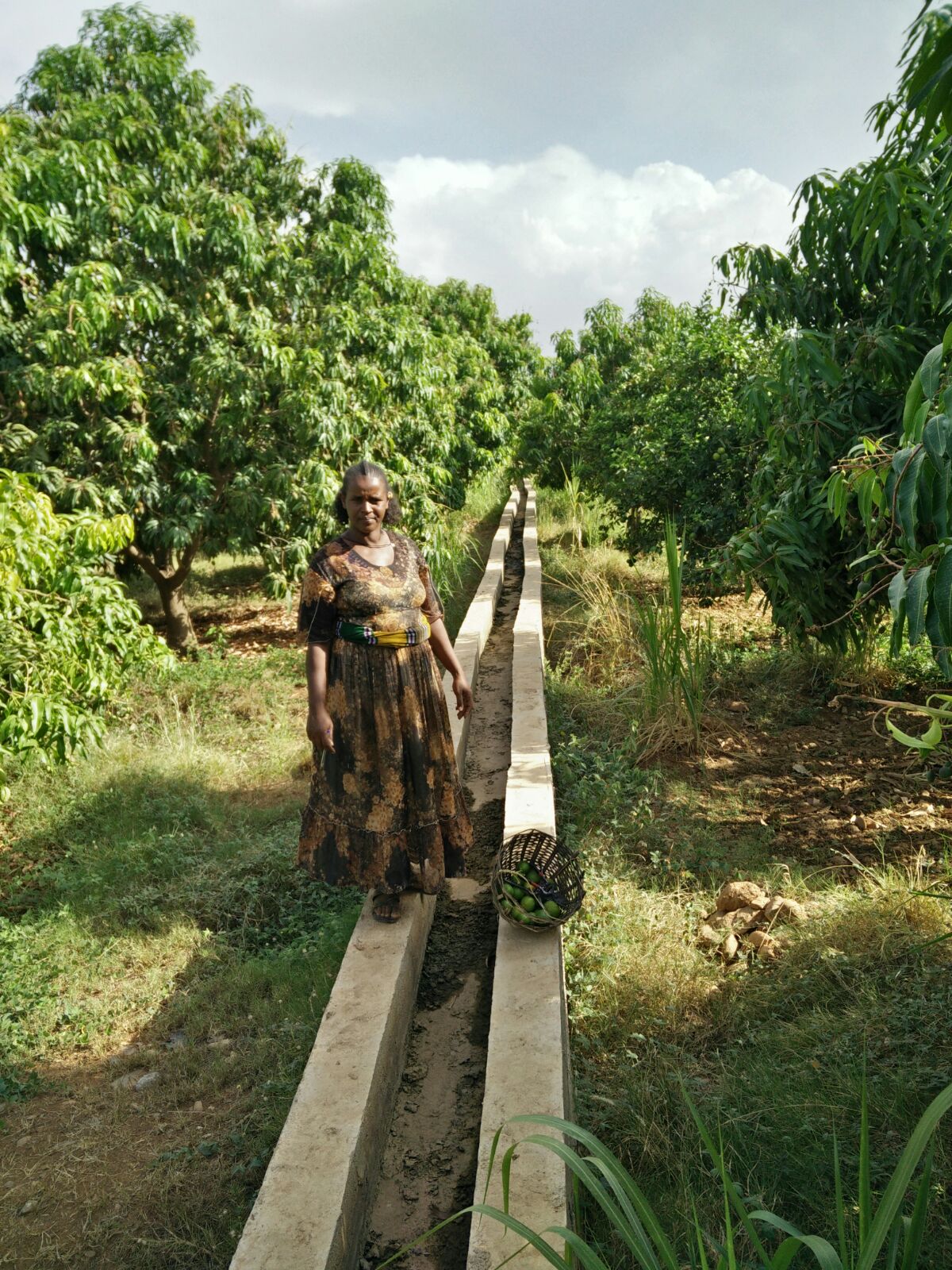 | 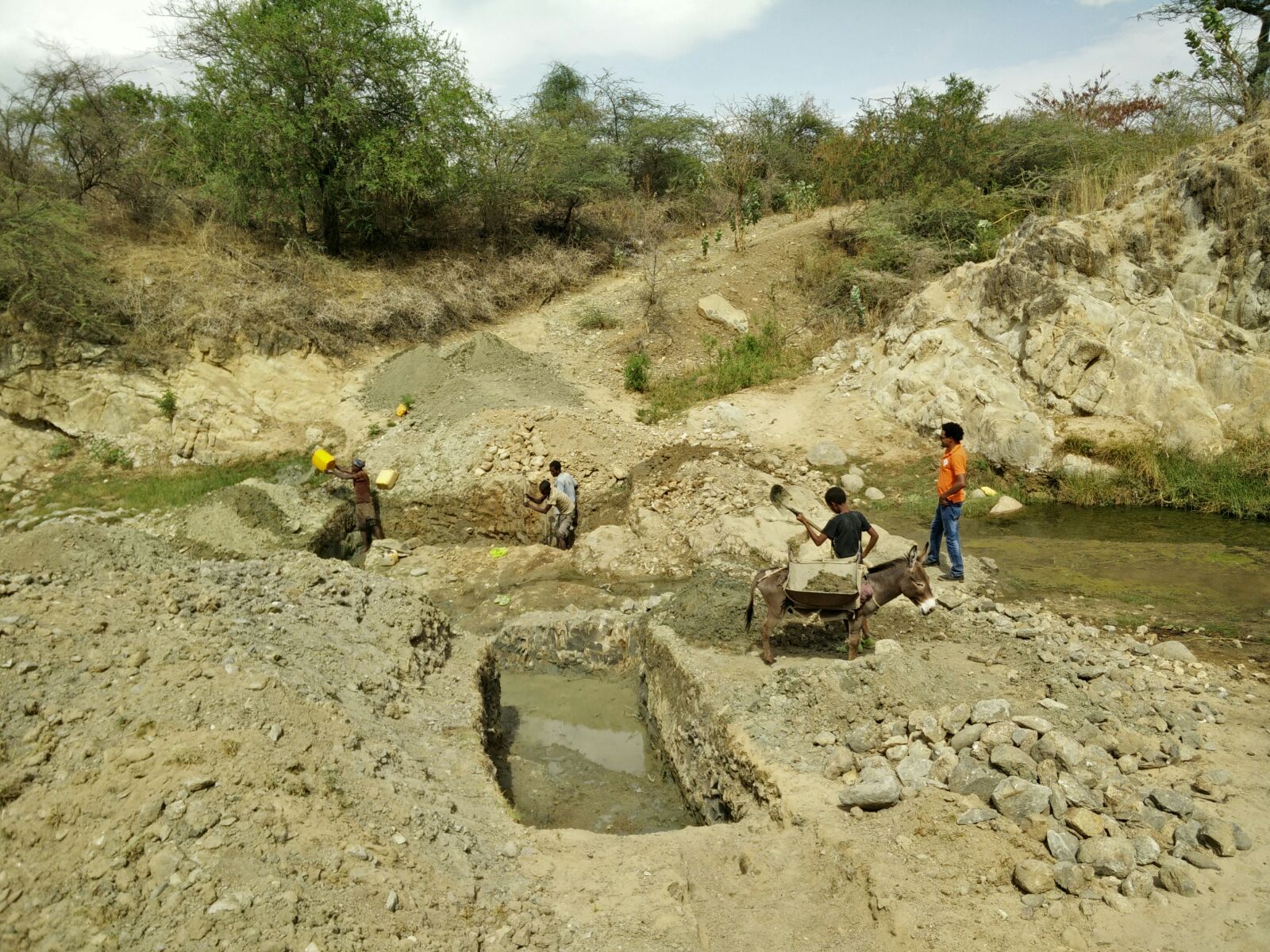 |
| A lined canal running through Haregu’s farm (left), and the river crossing under construction (right) | |
Having studied only up to the fifth grade, Haregu started with a small patch of barren of land allocated to her as a landless person. She now has 14 (Frisian) cows, 150 chicken and four beehives plus 500 orange trees, apart from the 6200 mango trees. She is visited by many aspiring farmers; she trained some 80 people. Some landless women who visited her are now in business as well running pump sets to irrigate their orchards. She also runs a side-business selling mango seedlings at 15 Ethiopian Birrs (0.75 Euros) and grafted plants at 150 Birrs (7.50 Euros).
Soft-spoken and determined, Haregu explains that she has a forty-year plan with her life. She still wants to improve her farm, for instance with the new river crossing. But she does not want to expand her farm any further. There is not that much land left in the bend of the river, but more importantly she does not want to trigger jealousy by becoming too big but rather help her neighbours get started. Part of her plan is to build houses and ultimately even a six story building in nearby Rana town, for which she has already acquired a concession (land).
We look at Haregu with amazement and joy. She shows how much is possible with wisdom, planning, determination, sharing and the opportunities to develop that are available to a single person.
We should all look inwards and find the Haregu within ourselves.
{jcomments on}
